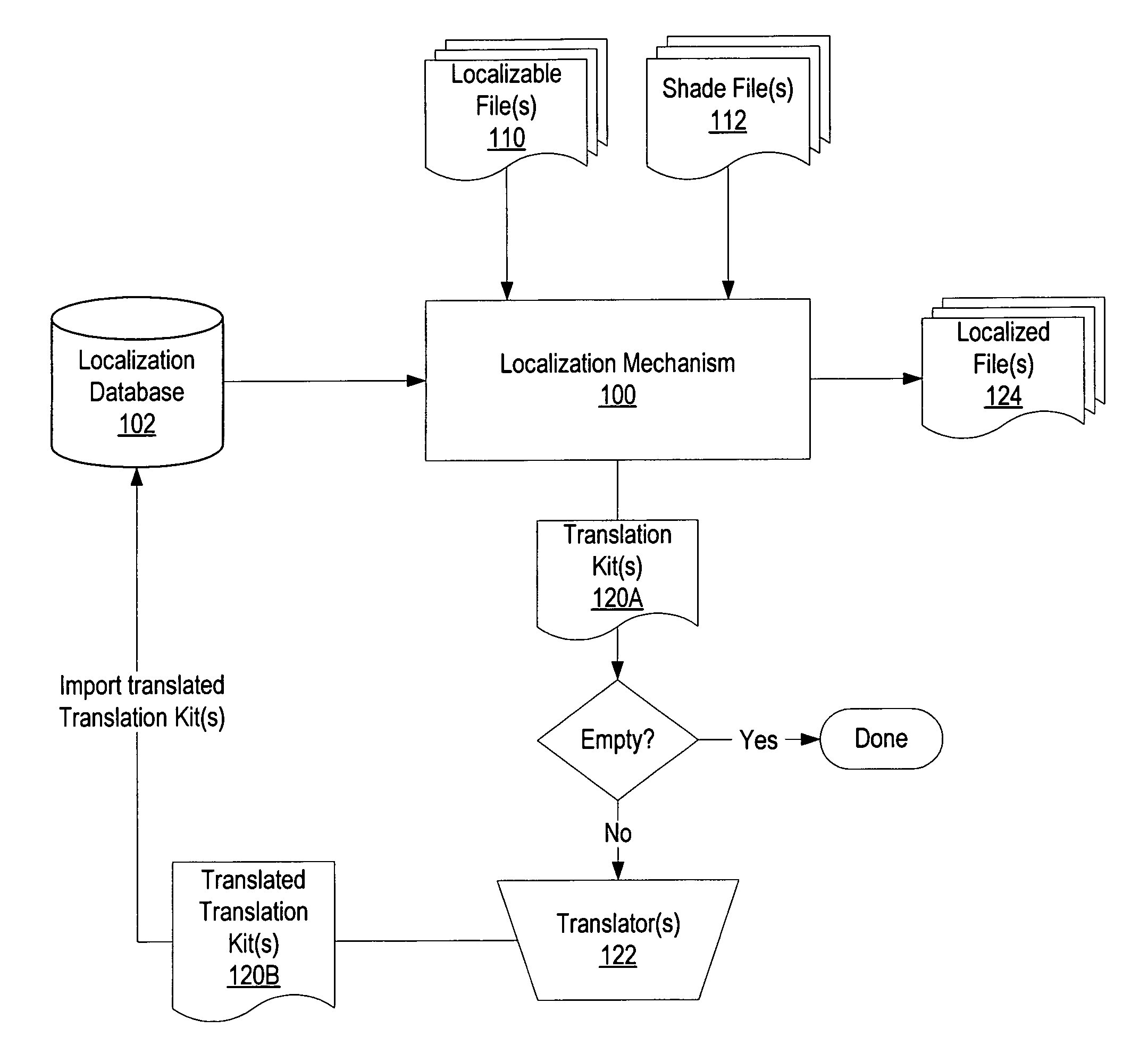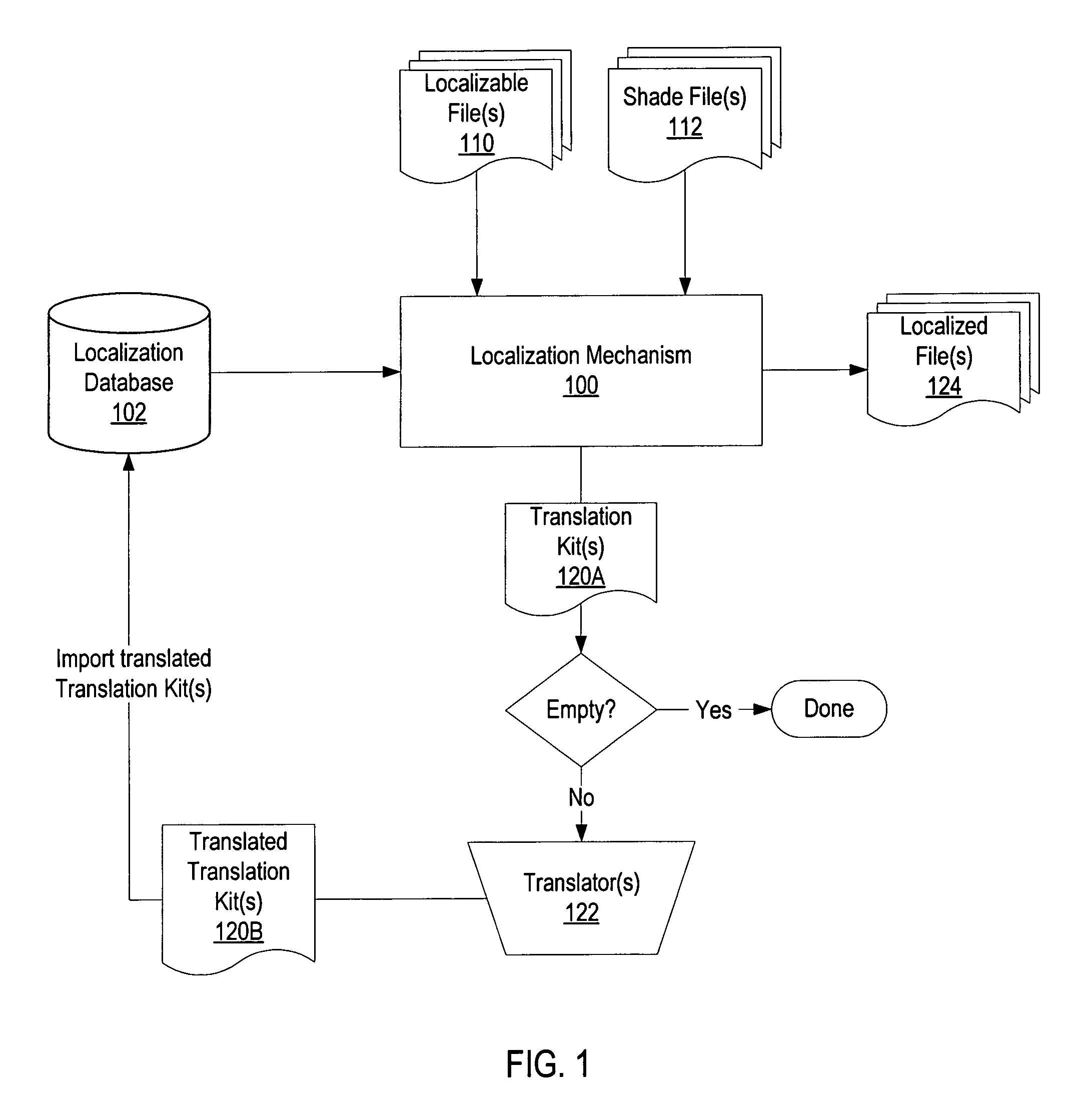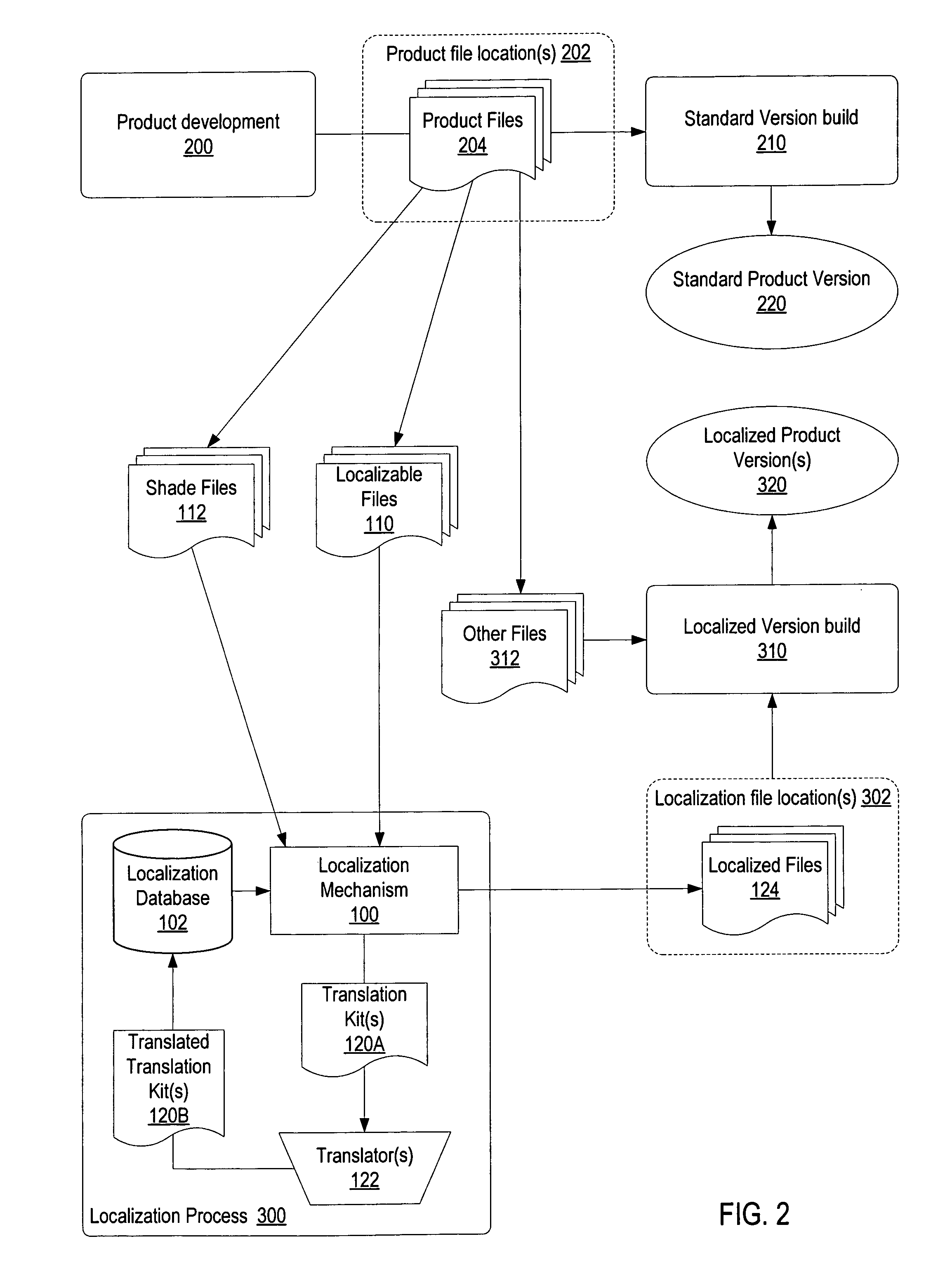Method and apparatus for on-demand localization of files
a file and file technology, applied in the field of computer systems, can solve the problems of difficult to merge the translation of localizable content back into the file, difficult to separate localizable content from localizable, and similar difficulties in localizing html, xml, and other file formats, and achieve the effect of more scalabl
- Summary
- Abstract
- Description
- Claims
- Application Information
AI Technical Summary
Benefits of technology
Problems solved by technology
Method used
Image
Examples
Embodiment Construction
[0022]Embodiments of a method and apparatus for the on-demand localization of files are described. Embodiments may provide a localization mechanism that automates the extraction of localizable text content from multiple file formats such as markup language formats (e.g., HTML and XML formats), JSP (Java® Server Page) format, etc, and that generates translation handoffs (referred to herein as translation kits) formatted according to a canonical, user-friendly translation kit format, hence reducing or eliminating errors in the translation process that are common in conventional localization methods. The generated translation kits may be handed off to translators for translation of the localizable text content in the translation kits. The localization mechanism may also automatically merge the translated text content generated from the translation kits into localized versions of the files while preserving the original file structure of the files.
[0023]Embodiments of the localization me...
PUM
 Login to View More
Login to View More Abstract
Description
Claims
Application Information
 Login to View More
Login to View More - R&D
- Intellectual Property
- Life Sciences
- Materials
- Tech Scout
- Unparalleled Data Quality
- Higher Quality Content
- 60% Fewer Hallucinations
Browse by: Latest US Patents, China's latest patents, Technical Efficacy Thesaurus, Application Domain, Technology Topic, Popular Technical Reports.
© 2025 PatSnap. All rights reserved.Legal|Privacy policy|Modern Slavery Act Transparency Statement|Sitemap|About US| Contact US: help@patsnap.com



